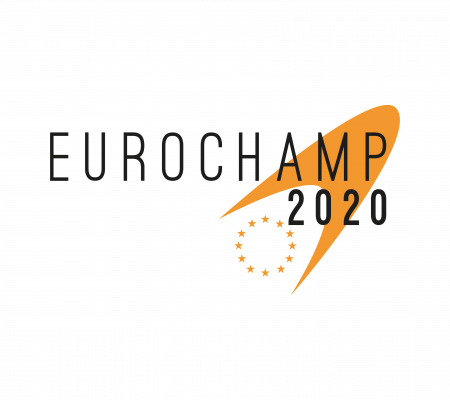

Deadline: 9th April 2021!
The photooxidation of biogenic and anthropogenic VOC in the gas phase influences the formation of tropospheric ozone and the oxidizing capacity of the atmosphere. By yielding to low vapour-pressure products that partition into the particle phase, it can lead to the formation of secondary organic aerosols (SOA), a major fraction of the aerosol mass budget in the atmosphere. While SOA are known to be harmful for health and to affect climate, the degradation mechanisms of the VOCs involved in SOA formation are very complex and remain poorly understood, limiting the accuracy of chemical transport and air quality models which, to date, still fail in estimating SOA formation in the atmosphere. Model outputs are impacted by uncertainties in estimating the SOA precursors budget, incomplete oxidation mechanisms of SOA formation pathways, partitioning and ambient conditions resulting in a gap between measured and modeled SOA of 1−2 orders of magnitude. To determine how the urban air mass mixes and cross react with the rural environment, it is important to identify the contribution of anthropogenic VOCs to SOA in mixed environments. Biogenic VOCs consist almost exclusively of unsaturated compounds with chemistry somewhat different from those of typical urban organic compound emissions. While the effects of anthropogenic emissions on the formation of biogenic SOA have already been studied, no information exists to date on the effects of biogenic emissions on anthropogenic SOA. The ACROSS project provides with the framework and the momentum to address these broad and urgent scientific questions regarding the formation of secondary organic aerosols (SOA) from air pollution and vegetation and their role on air quality and climate.
The proposed PhD project aims at improving the knowledge of the chemical oxidation processes involved in the SOA formation and evolution pathways of both urban pollution plumes and biogenic emissions from vegetation, and their mixing in rural and/or peri-urban air masses, in order to quantify the contribution of anthropogenic emissions of VOCs to the mass of SOA. To achieve this overarching goal, the PhD project will use a tracer-based approach to link and apportion the composition and sources of SOA to its precursor VOC in ambient air. While powerful and directly transferable to air quality models, this approach requires the knowledge of unique molecular markers (tracers) of SOA and their VOC precursors, which, in particular for anthropogenic emissions, are missing to date. Indeed, only a few studies detail the mechanism of formation of different tracers, resulting in the difficulty of estimating their generation of oxidation and their specificity. It is therefore essential to characterize a precursor by a maximum of tracers while to better document the parameters governing the formation and evolution mechanisms of the tracers. A break-through improvement of the current knowledge of the chemical composition at molecular scale of biogenic and anthropogenic SOA is needed. To do so, this PhD proposes an innovative methodology combining 1/ a mechanistic study of the oxidation of a wide variety of targeted VOCs precursors in laboratory chamber experiments with simulated atmospheres under various and controlled environmental conditions mimicking urban and biogenic emissions and their mixing, to 2/ field observations to identify the targeted tracers in the real atmosphere, and quantify their concentrations in ambient air. These experiments will be conducted at LISA using the CESAM simulation chamber (http://www.cesam.cnrs.fr/). The field observations will be conducted during the ACROSS intensive observational campaign (Atmospheric ChemistRy Of the Suburban forest, www.across.cnrs.fr) which will take place in June-July 2022 in the greater Paris area.
The PhD work will be conducted at LISA (Laboratoire Interuniversitaire des Systèmes Atmosphériques, http://www.lisa.u-pec.fr/fr) in Créteil, in the suburbs of Paris. The candidate must have a master's degree in chemistry and have a good knowledge of atmospheric sciences and analytical chemistry. The candidate must have a good level of English (oral and written) and a knowledge of French would also be appreciated.
Please note that there is a selection procedure for PhD candidates. The Conditions of eligibility of candidates are:
- Less than twelve months of residence in France during the three years preceding the selection;
- Candidates must hold a diploma that allows access to doctoral studies in France (Master's degree or any other equivalent diploma) at the time of recruitment;
- No previous enrolment in a PhD sholarship;
- Obtaining the master’s degree less than 4 years before the beginning of the project.
To apply for the Phd, please find the link: https://4impact.u-paris.emundus.io/en/
If interested, please send a detailed CV and a letter of application with your research interests to Paola Formenti (paola.formenti[a]lisa.ispl.fr) and Aline Gratien (aline.gratien[a]lisa.ipsl.fr).




